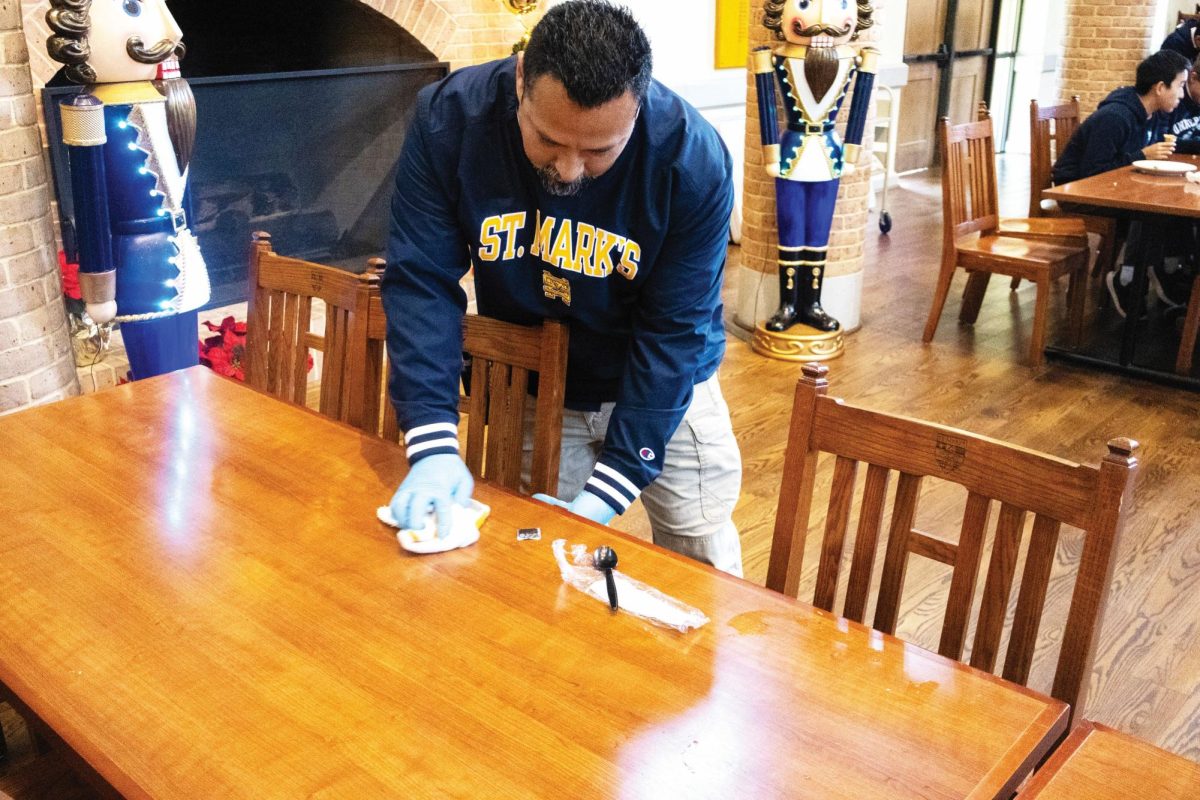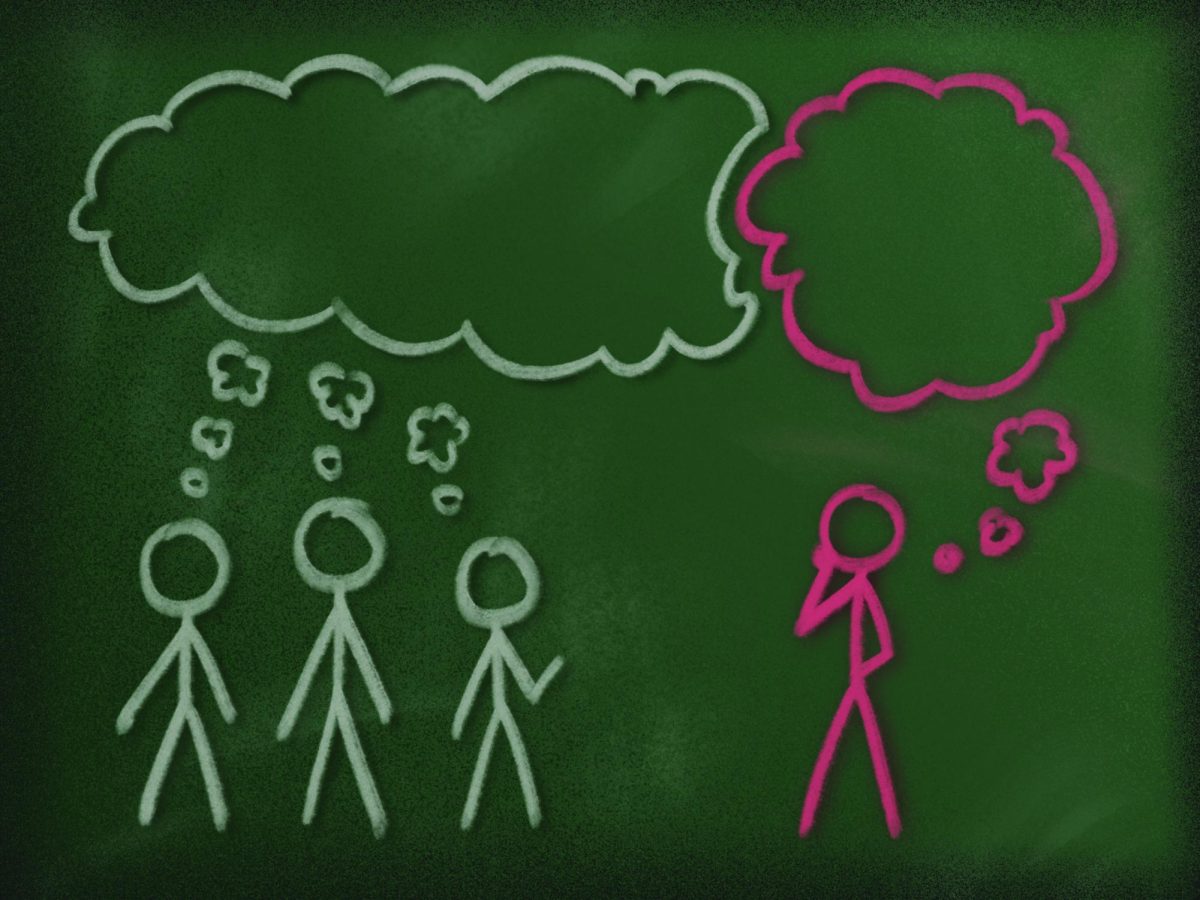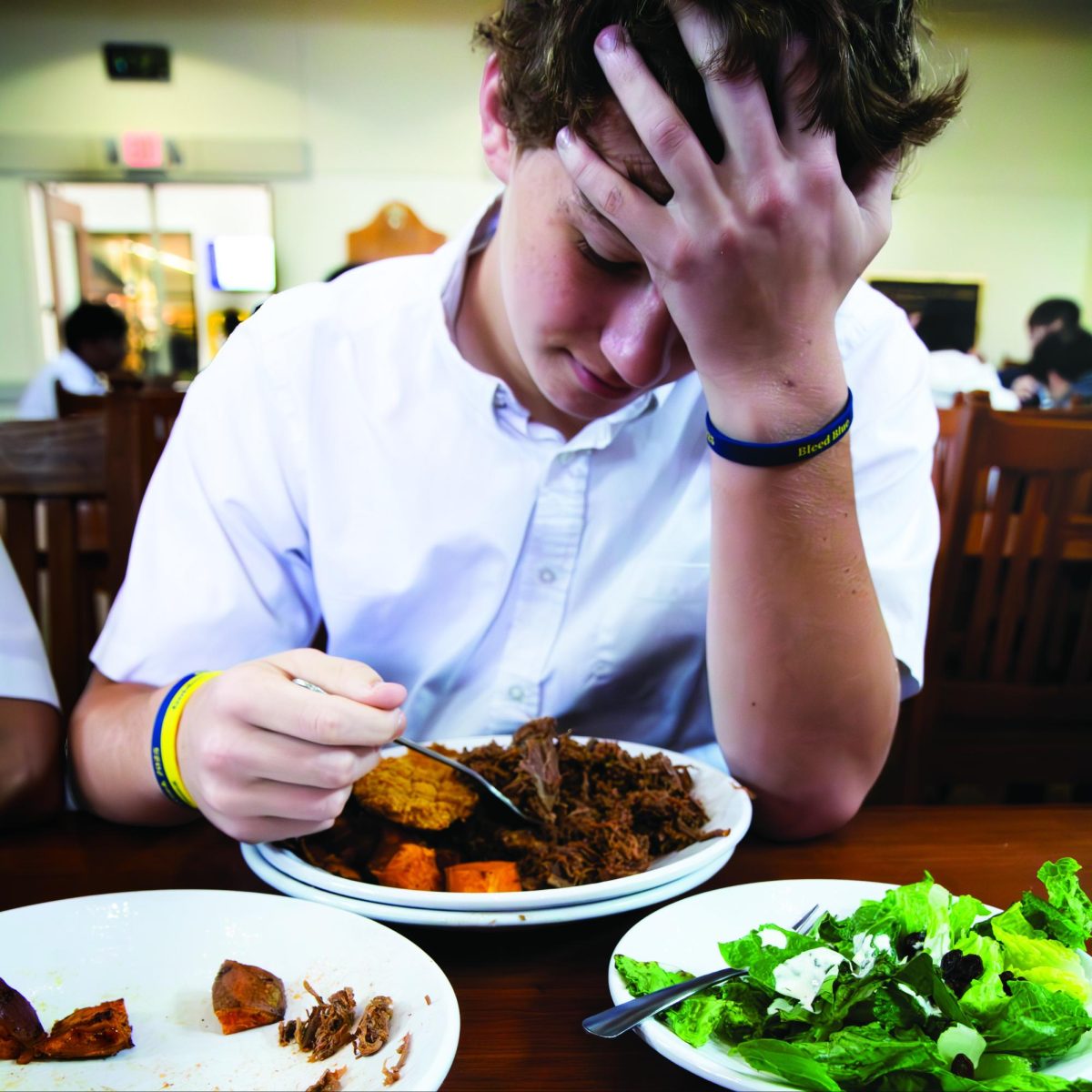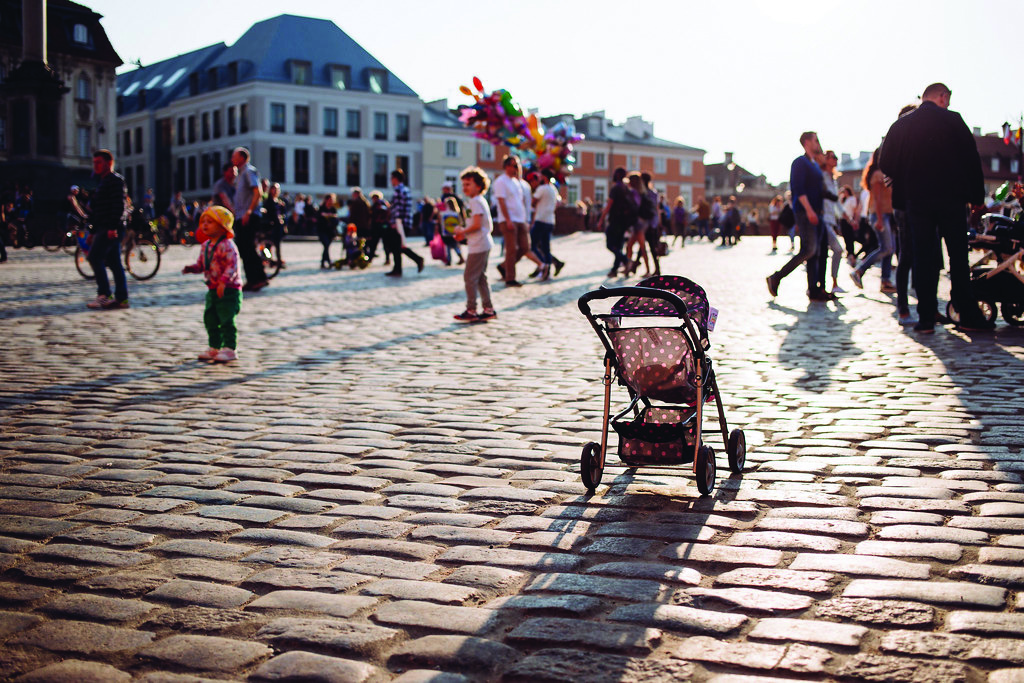During lunch, the Great Hall fills with activity, leaving behind a familiar aftermath. A few plates sit forgotten on a few tables, smears of ketchup and faint rings of spilled lemonade and soft serve dot the surfaces. After the students leave, a cleaning crew member moves through the room with practiced efficiency, a spray bottle in one hand and a cloth in the other, making sure to wipe each table clean, soaking the rag as it absorbs the residue of the day’s meals and ensuring that the occasional spill and leftover dish are quickly addressed.
After school, chairs are scattered haphazardly around the Centennial Lounge, abandoned mid-discussion or mid-study session, while notebooks and writing utensils lie forgotten on tables and hoodies slump over couches. Another staff member moves silently through the room, picking up stray pencils, brushing crumbs from tabletops and pushing chairs neatly into rows, each movement erasing evidence of the day’s chaos.
In the Commons, it’s a different battle. Snack wrappers and spilled drinks clutter the floor, crumbs of leftover Cheez-Itz from snack time crunch underfoot and smears of mashed bananas meld into the carpet. A final maintenance member kneels, scraping the sticky residue from the floor, their gloves slick with cleaning solution. Across the room, a vacuum hums steadily, swallowing up the remnants of hundreds of students moving in and out in a hurry.
Afterward, several staff members take a step back, survey their work and move on, knowing it will look the same by the next afternoon. For the school maintenance staff, the work is endless and often overlooked. As the day winds down and the campus grows quieter, their tasks stretch into the evening. The same motions repeat, day after day: picking up, cleaning up and wiping away the traces of hundreds of students who might never notice the effort it takes to make the spaces around them feel seamless and new again.
For maintenance staff member Adriana Enriquez and her team, cleaning isn’t just a job; it’s a front-row seat to the organized and the essentially unseen chaos of campus life, from forgotten lunch to scattered papers.
“When I started in 2021, it was chaos after COVID,” Enriquez said. “The Great Hall wasn’t even open yet, and people said it was never like this before. Now, things are improving because teachers and staff are working hard to bring back those pre-COVID habits.”
In her experience, the habits that students bring to campus and the ones that they leave behind often differ by age group. Lower School students learn about cleanliness and responsibility at a young age.
“They’re learning to help clean up after themselves, and it’s making a big difference,” Enriquez said. “They grab towels, wipe tables—it’s simple, but important. Many didn’t even know how to clean a table before.”
The enthusiasm of younger students contrasts with the often rushed behavior of their older peers which, to Enriquez, is partially justified.
“Upper School students forget to clean up sometimes, but it’s not intentional,” Enriquez said. “They’re busy, and we understand that. Maybe they see a teacher and rush over to talk about school work or about a club. It’s different with Middle Schoolers; they’re just full of energy and always playing.”
These daily rituals of cleaning are more than just maintenance – they’re lessons in respect for shared spaces.
“Taking agency for personal items in classrooms, on the playing fields and in the Great Hall is a critical undertaking,” Head of Middle School Dean Clayman said. “It demonstrates respect for shared spaces and accountability for actions. Moreover, these habits extend beyond school and contribute to (Marksmen’s) growth as thoughtful and considerate individuals in their homes and other communities.”
In a school environment, actions often speak louder than words, as students of all ages instinctively look up to their peers and older classmates and imitate their behavior.
“These habits create a ripple effect, reinforcing the values of responsibility, gratitude and community,” Clayman said. “Each small effort contributes to a larger culture of respect and care, embodying the spirit of community that defines us.”
This whirlwind of activity, from school assignments and conversations with friends, can sometimes lead to forgetfulness.
“Students just need to slow down and pay attention,” Enriquez said. “They get so caught up in playing or rushing that they don’t think about the mess they’re leaving behind.”
Despite the challenges, Enriquez doesn’t see her role as a burden. In fact, the positive interactions she shares with students make the work worthwhile.
“Most students are polite. They say thank you, hold the door open—it feels good,” Enriquez said.
Even in the most chaotic moments, Enriquez finds joy and, more importantly, meaning in her job.
“Students often forget we’re here, but we see everything—the playing, the messes. It’s part of the job, and honestly, it can be fun sometimes,” she said.
Maintenance crew faces messes
December 13, 2024
Categories:
A staff member diligently wipes the lunch table, preparing it for the Lower Schoolers after Upper School lunch.
More to Discover
About the Contributor

Andrew Ye, Focus Editor







